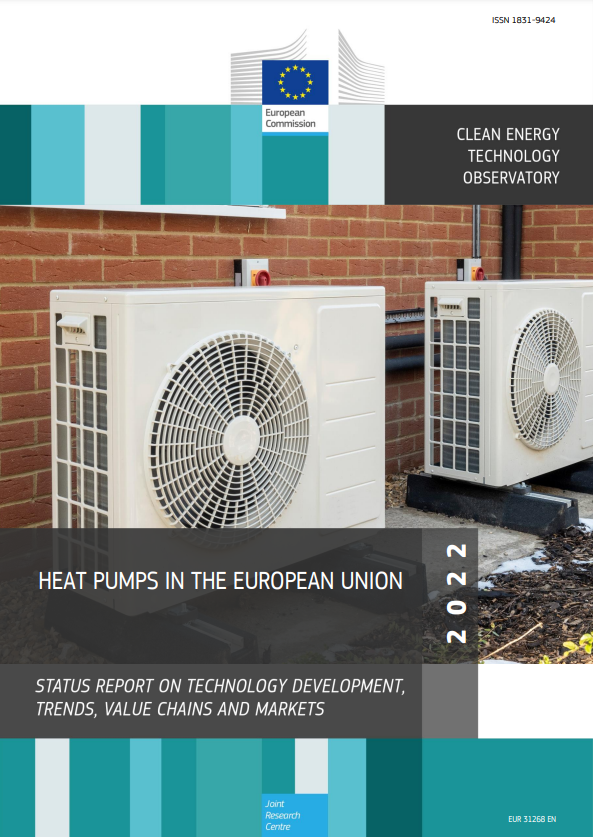F-gas proposal continues to generate diverse positions on feasibility
The Parliament committee on Industry, Research and Energy (ITRE) recognises industry concerns about the effects of the more rapid phase-down of HFCs in the Commission F-gas proposal. Rapporteur Sara Skyttedal’s revision proposal, passed on 24th January, states: “The Commission’s proposal on the proposed HFC phase-down would de facto be a phase-out of HFCs in new equipment as of 2027 which would seriously jeopardise the EU’s 2030 climate and energy ambitions and the goal of REPowerEU to accelerate heat pump roll-out.” The ITRE proposal seeks to delay the EC proposals to restrict HFCs in split systems until 2030 and introduce a similar three-year pause in the proposed new F-gas phase down timetable. The European Partnership for Energy and the Environment (EPEE) Director General, Russell Patten, congratulates the ITRE Committee members and its Rapporteur Sara Skyttedal MEP, stating that “the vote leads to a more balanced and realistic trajectory for the HFC phase down. This is a great start but there is still some way to go to realise the full potential of the Heat Pump roll-out, especially in the next crucial 10 years”. Cooling Post provides more information about the ITRE proposal and the EPEE press release about the proposal is available here.
 The “Heat Pumps in the European Union” report (November 2022) summarised industry positions and the design of the F-gas proposal, according to the Commission, with industry associations contending that the transition to more flammable substances presents significant additional complexities. More recently the Asercom president Marco Masini commented that “What really matters for the environment is the actual feasibility of a proposal. If there are false or misleading targets, in terms of timing and/or technologies, we fail as an industrial and political fabric to make our powerful contribution to decarbonising our economies.”
The “Heat Pumps in the European Union” report (November 2022) summarised industry positions and the design of the F-gas proposal, according to the Commission, with industry associations contending that the transition to more flammable substances presents significant additional complexities. More recently the Asercom president Marco Masini commented that “What really matters for the environment is the actual feasibility of a proposal. If there are false or misleading targets, in terms of timing and/or technologies, we fail as an industrial and political fabric to make our powerful contribution to decarbonising our economies.”
Extract from the Heat Pumps in the European Union 2022 report (Box 4. F-gases and heat pumps) “Both the deployment of heat pumps and the phase-down of F-gases reduce greenhouse gas emissions. Industry associations EHPA, EPEE, AREA and APPLiA argue that a more rapid phase-down than in the current F-Gas Regulation would limit the growth potential of heat pumps (see for example EHPA, 2022b). However, the Commission proposal for a revision is designed to allow for the heat pump growth needed under REPowerEU, while preventing direct emissions from refrigerants from increasing. The prohibition dates were proposed to allow sufficient time for manufacturing to adapt, although industry associations contend that the transition to more flammable substances presents significant additional complexities in terms of compliance and changes to building codes.” The report comments that “R-410A accounts for the large majority of air-water and water-source heat pump sales in Europe currently, while most air-air heat pumps on sale use R-32. Until now, compression heat pumps have generally used F- gases, but a shift to natural refrigerants where possible is under way, as a result of industry implementing the F-Gas Regulation.”
According to an article in the Cooling Post, reports suggest a larger number of states are against diluting the overall level of ambition of the proposal. Industry groups have previously described these proposals as unrealistic both in terms of the speed of technological development and in terms of the number of installers that would need to be trained and certified to handle the new refrigerants. However, the article suggests that the Commission concedes that further discussion will be necessary on other key elements of the proposal, with the plenary vote not happening until April 2023 at the earliest. Read the complete Cooling Post article.
The F-gas Regulation in Great Britain Assessment report (December 2022) discusses heat pumps and the interaction with F-gas regulation in detail, commenting “The Climate Change Committee’s (CCC) Sixth Carbon Budget acknowledges the expected rise in F-gas emissions associated with an increased deployment of heat pumps up to 2050. The CCC go on to state that the greenhouse gas benefits of switching from fossil fuel heating to heat pumps far outweigh the potential increase in HFC emissions from refrigerant leakage. This finding is supported by the analysis in this report. If heat pumps use lower GWP F-gases or non-F-gas alternatives (taking account of energy efficiency), the expected rise in emissions can potentially be minimised and the net benefit to meeting the net zero target of switching to heat pumps will be even greater.” The Cooling Post has an extended article on this report.